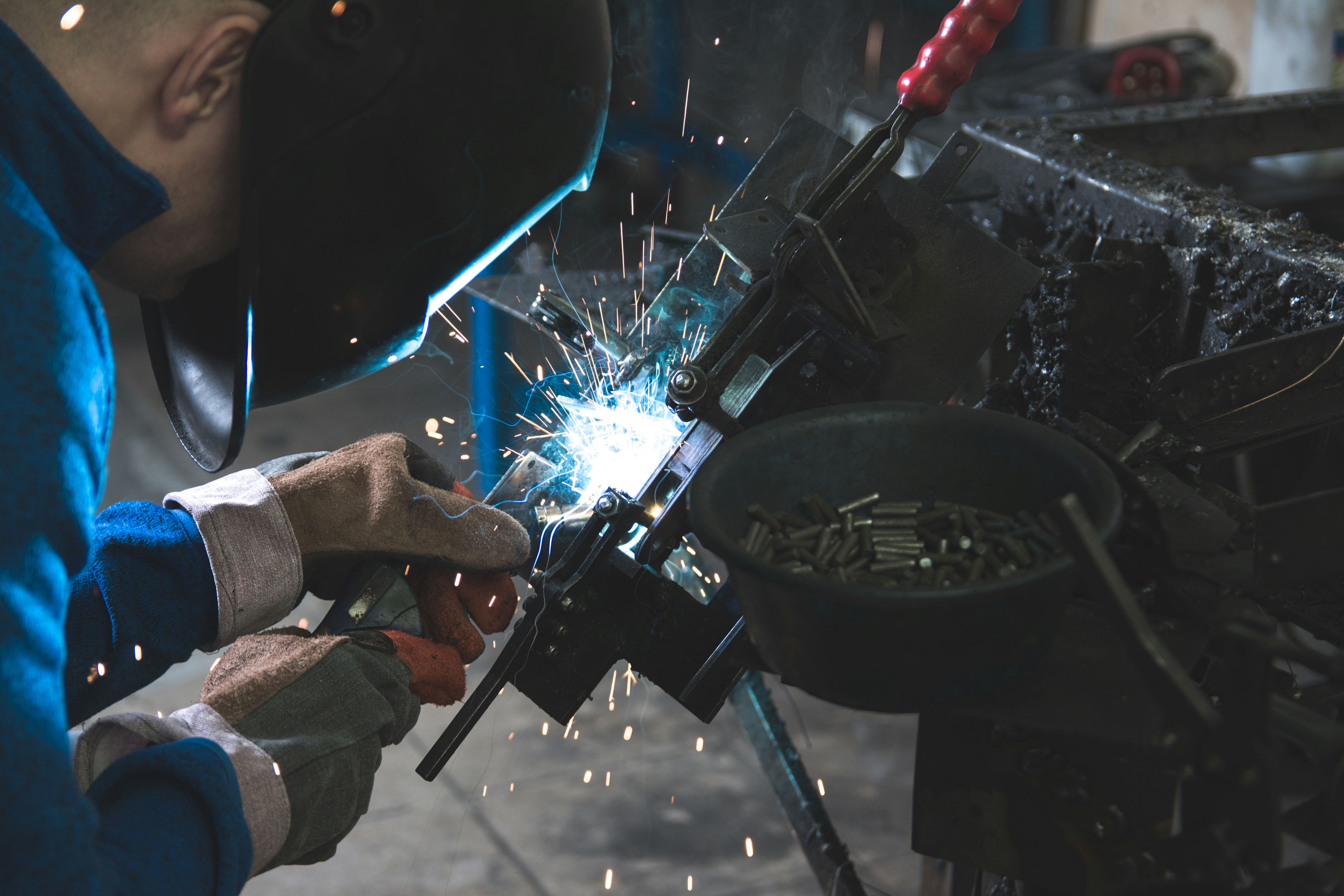Welding Jobs: Forging a Bright Career in the Welding Industry
Welding is an essential skill in industries ranging from construction and manufacturing to automotive and aerospace. Whether you're joining metal parts, fabricating structures, or repairing machinery, welding plays a key role in building and maintaining the infrastructure that powers our world. As a welder, you’ll have the opportunity to work on exciting and diverse projects, often with the satisfaction of seeing your work in action.

The Bright Future of Welding Careers: Opportunities and Advancements
Welding is a crucial skill in various industries, from construction to aerospace. As technology advances and infrastructure needs grow, the demand for skilled welders continues to rise. This article explores the exciting world of welding careers, highlighting the opportunities and advancements that make this field an attractive option for those seeking a rewarding and stable profession.
Why Choose a Career in Welding?
Welding offers a unique blend of hands-on work and technical expertise. It’s a field that combines creativity with precision, allowing individuals to contribute to the construction of everything from skyscrapers to spacecraft. The welding industry is known for its job security, competitive salaries, and opportunities for advancement. With the constant evolution of welding technologies, professionals in this field can enjoy a career that’s both challenging and fulfilling.
Types of Welding Specializations
The welding industry encompasses a wide range of specializations, each with its own set of skills and applications. Some popular welding types include MIG (Metal Inert Gas) welding, TIG (Tungsten Inert Gas) welding, and stick welding. Underwater welding is another exciting specialization that combines welding skills with diving expertise. Additionally, there’s a growing demand for welders skilled in working with advanced materials like titanium and aluminum, particularly in the aerospace and automotive industries.
Getting Started in Welding
Embarking on a welding career typically begins with formal education and training. Many technical schools, community colleges, and vocational institutes offer welding programs that provide hands-on experience and theoretical knowledge. These programs often cover safety procedures, blueprint reading, and various welding techniques. After completing a program, aspiring welders can pursue certifications from organizations like the American Welding Society (AWS), which can significantly enhance their employability and earning potential.
Advancements in Welding Technology
The welding industry is experiencing rapid technological advancements. Robotic welding systems are becoming more prevalent, requiring welders to develop skills in programming and operating these sophisticated machines. Virtual reality (VR) and augmented reality (AR) are being integrated into welding training programs, allowing students to practice in simulated environments before working with actual materials. Additionally, new welding processes like friction stir welding and laser welding are opening up new possibilities in manufacturing and construction.
The Global Demand for Welders
Welding skills are in high demand worldwide. Many countries are experiencing a shortage of skilled welders, leading to excellent job prospects and competitive salaries. The construction boom in developing nations, coupled with the need for infrastructure upgrades in developed countries, ensures a steady demand for welding professionals. Moreover, the push towards renewable energy sources like wind turbines and solar panels has created new opportunities for welders in the green energy sector.
Welding Career Paths and Specializations
Welding offers diverse career paths beyond traditional construction and manufacturing roles. Welders can specialize in areas such as aerospace welding, pipeline welding, or even artistic welding for sculpture and design. Some welders choose to become welding inspectors, ensuring the quality and safety of welded structures. Others may pursue roles in welding education, training the next generation of professionals. For those with an entrepreneurial spirit, starting a welding business or becoming a traveling welder can provide flexibility and lucrative opportunities.
| Welding Specialization | Industry | Average Salary Estimate (USD) |
|---|---|---|
| Underwater Welding | Marine/Offshore | 70,000 - 100,000+ |
| Aerospace Welding | Aviation/Space | 65,000 - 90,000 |
| Pipeline Welding | Oil & Gas | 60,000 - 85,000 |
| Industrial Welding | Manufacturing | 45,000 - 70,000 |
Note: Salary estimates are based on industry averages and may vary based on location, experience, and specific employer. It is encouraged to conduct independent research for more accurate and up-to-date salary information.
The welding industry continues to evolve, offering exciting opportunities for those willing to develop their skills and embrace new technologies. From traditional construction projects to cutting-edge aerospace applications, welders play a crucial role in shaping the world around us. As industries advance and new materials emerge, the demand for skilled welders is likely to remain strong. Whether you’re just starting your career or looking for a change, welding offers a path to a stable, rewarding, and potentially lucrative profession with room for growth and specialization.
The shared information of this article is up-to-date as of the publishing date. For more up-to-date information, please conduct own research.




